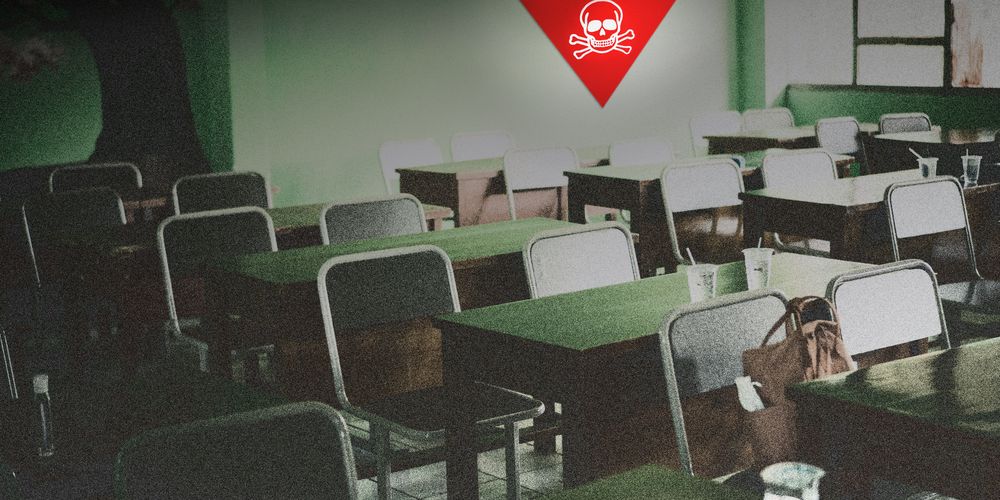2 April 2023

Over 25 years after the Mine Ban Treaty was signed in Ottawa, 60 million people in 67 countries still live with threats to their safety, human rights, and development. What if this were Switzerland?
The vast majority of people killed or injured by landmines, cluster munitions, and other explosive ordnance are civilians, half of them are children. In 67 countries, these weapons are found along roads and borders, near homes and schools, and in other places where daily life continues. This forces an estimated 60 million people to live in risk, especially when there is no alternative road to school, no access to medical care nearby, no safe land to farm.
Switzerland is a major contributor to humanitarian demining around the world, including through the Geneva International Centre for Humanitarian Demining (GICHD), founded a quarter of a century ago. Swiss mine action support has made recent news as Swiss Federal Councillor and Head of the Federal Department of Defence, Civil Protection and Sport (DDPS) Viola Amherd stressed these efforts as a key part of the country’s aid to Ukraine. April 4th is International Day for Mine Awareness and Assistance in Mine Action, an opportunity to raise public awareness on the devasting and lasting effect of landmines, cluster munitions and other explosive ordnance (EO).
Switzerland itself is not affected by this kind of contamination and its devastating effects. But what could these effects look like if these weapons were present across Switzerland?
A Switzerland with mines: Threatening lives and so much more
Every day 58,000 vehicles cross Geneva’s Mont Blanc Bridge, this represents over 10 percent of population of the Canton. Today, anyone using the bridge will be treated to the sight of the GICHD’s flag to mark Mine Action Awareness Day. Bridges and strategic roads are often targets where explosive ordnance is left, leaving people with no choice but to go on with their lives, despite the dangers.
About 75% of children in Switzerland walk to school in Switzerland every day. This is considered an important part of Swiss culture by many. What would change if the way to school were impacted by explosive ordnance? This threat would exist whether children walked or found another form of transport. Children are especially vulnerable to landmines and other explosive ordnance, since they are often curious and unaware of the dangers. Compared to adults, the smaller size of children puts them at a greater risk to suffer very serious injuries or death.
Beyond personal safety on the move, landmines and other explosive ordnance can bring economic activity to a halt. Basel’s strategic freight positioning makes it one of the most important border regions in Switzerland. If impacted by mines or other explosive ordnance, this could have consequences for the industry, which contributes 1.9 billion CHF in gross value added annually. A blow to logistics operations for Switzerland would likely have a domino effect with its main import and export trading partners including Germany and the EU.
If transport and trade routes were impacted by mines and other explosive ordnance, Switzerland’s ability to maintain its high GDP, ranked 20 in the world according to the World Bank, would be jeopardised. Swiss exports are led by the chemicals and pharmaceuticals industry, generating roughly 50% of total annual exports and contributing to 5% of GDP.
The Alps cover 60 percent of the country’s total surface area, a beautiful landscape that has attracted tourists all-year round and is at the heart of Swiss identity. What if skiing, hiking, or driving through mountain passes was no longer an option due to contaminated land? The steep and uneven mountainous terrain would make the task of clearing landmines particularly difficult implying millions of CHF to clear the land and potentially resulting in decades of blocked access due to the dangers.
Support for Humanitarian Mine Action Promotes Peace and Stability
While Switzerland is not faced with the devasting reality of living with landmines, improvised explosive devices, cluster munitions and other explosive ordnance, it is an important part of the solution through Swiss leadership and on-going support for humanitarian mine action. At international level, Geneva stands as the capital of peace, disarmament, and humanitarian law. It is the heart of coordination and monitoring of progress under the Anti-personnel Mine Ban Treaty, which was adopted 25 years ago. Now in force in 164 States, the treaty has saved innumerable lives. More than 50 million antipersonnel mines have been destroyed, more than 30 States are now mine-free.
Through organisations like the GICHD, Swiss support for local and national capacity to understand and address the complicated problems cause by these weapons promotes sustainable peace and stability, which are both essential for global prosperity and development as well as pillars of Swiss foreign policy.
-------------------
Version Française
Deutsche Fassung
Versione Italiana
-------------------
Media Inquiries:
-
Laura Collier, Communications Manager, GICHD
-
Email: l.collier@gichd.org
